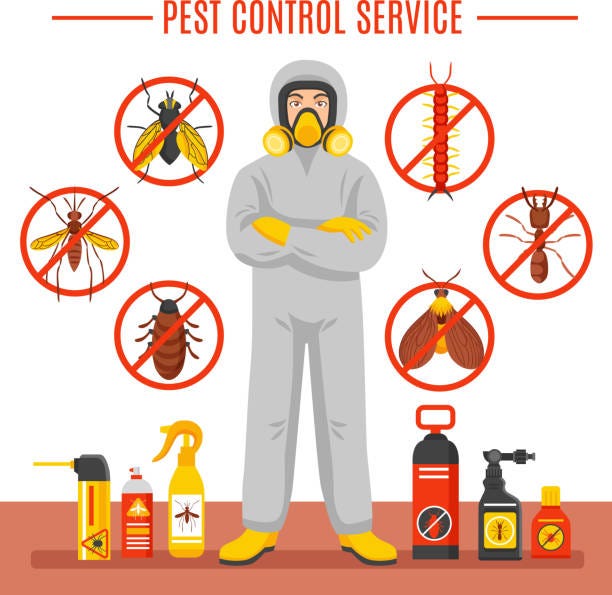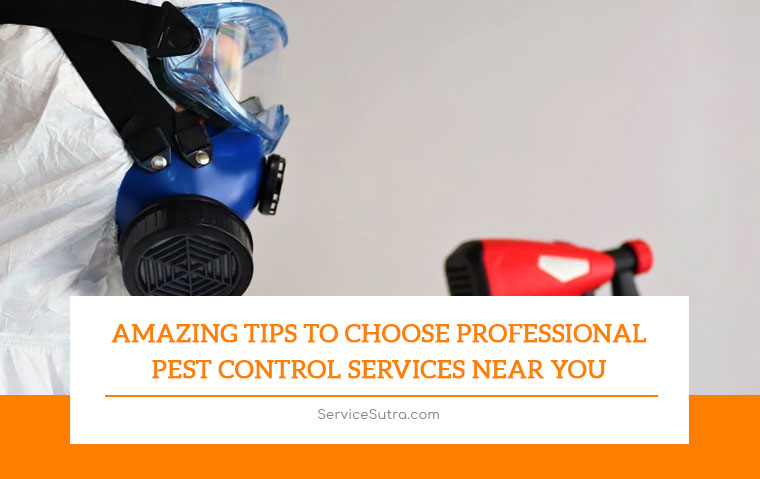Premier Pest Control Clovis Providers: Your Satisfaction
Premier Pest Control Clovis Providers: Your Satisfaction
Blog Article
Recognizing the Different Techniques to Parasite Control: A Comprehensive Guide

All-natural Bug Control Techniques
Employing eco-friendly techniques such as buddy planting and organic pest control is necessary for successfully taking care of bugs in agricultural setups. Buddy growing entails growing various plants in proximity to deter parasites, enhance nutrient uptake, and enhance general crop health and wellness. Planting marigolds alongside tomatoes can aid repel nematodes. Intercropping maize with vegetables can interrupt the reproduction patterns of bugs like corn borers.
Organic pest control entails presenting all-natural predators or microorganisms to manage pest populaces. Ladybugs, as an example, feed upon aphids, regulating their numbers without the need for chemical pesticides. One more example is making use of Bacillus thuringiensis (Bt), a bacterium that targets details insect parasites while being safe to people, animals, and beneficial insects.
These environment-friendly methods not just decrease the dependence on artificial pesticides however also assist maintain biodiversity and dirt health and wellness. By including natural insect control approaches into farming methods, farmers can accomplish lasting insect management while minimizing adverse impacts on the setting.

Chemical Parasite Control Solutions
In addition to natural parasite control techniques, the utilization of chemical pest control services plays a substantial function in efficiently handling pest populaces in agricultural environments. Chemical pest control options are formulated to target certain bugs that may create comprehensive damages to plants. These services frequently contain artificial chemicals that are developed to remove bugs rapidly and successfully.
One of the vital advantages of chemical pest control services is their effectiveness in controlling bug problems on a huge scale. Farmers can apply these options using various methods such as splashing, airing out, or seed treatment to protect their crops from damaging pests, weeds, and conditions. Furthermore, chemical pest control options are fairly very easy to apply and can provide quick results, helping farmers safeguard their returns and reduce financial losses.
Nonetheless, it is important to use chemical parasite control remedies judiciously to lessen prospective unfavorable effects on the environment, non-target microorganisms, and human wellness. Correct application methods, adherence to security standards, and routine tracking are essential to make sure the liable use of chemical bug control solutions in agricultural methods.
Organic Pest Control Approaches
Biological pest control approaches leverage natural predators or microorganisms to handle bug populaces in farming setups properly. One usual organic control strategy is the intro of all-natural adversaries, such as ladybugs or parasitical wasps, to target specific pests.
Another biological control method entails making use of virus like fungi, infections, or bacteria to contaminate and eliminate bugs. These microbial agents can be sprayed on plants or presented into the soil to battle numerous insects without hurting advantageous insects or other wild animals. Furthermore, making use of pheromones to interfere with the breeding patterns of insects is an additional reliable biological control strategy. By disrupting their recreation, this method aids to minimize insect populaces without the requirement for chemical intervention. Generally, organic insect control approaches use a sustainable and targeted remedy to pest administration in agriculture.
Integrated Pest Administration (IPM)
Integrated Parasite Management (IPM) is an extensive technique that combines different bug control strategies to efficiently take care of and reduce pest populaces in farming systems. IPM focuses on long-lasting prevention of parasites through a combination of biological, social, physical, and chemical control methods. By integrating these different techniques, IPM intends to lower reliance on chemical pesticides, reduce environmental effect, and advertise lasting pest management practices.
One secret element of IPM is making use of organic controls such as all-natural killers, bloodsuckers, and pathogens to regulate insect populations. This technique uses the power of nature to keep an equilibrium in between parasites and their company website all-natural adversaries without creating injury to the setting.
Additionally, IPM involves cultural practices like crop rotation, sanitation, and environment manipulation to develop negative conditions for bugs and interrupt their life cycles. Physical controls such as catches, mulches, and barriers are additionally used to stop insect infestations.
Mechanical and Physical Insect Control Techniques
Making use of non-chemical techniques, such as mechanical and physical pest control strategies, is an essential aspect of thorough parasite administration techniques, developing upon the foundation of Integrated Insect Management's holistic technique. Mechanical insect control entails using physical barriers or catches to avoid insects from accessing and harming crops or frameworks. This technique can consist of methods like installing displays on home windows, utilizing row covers in agriculture, or using sticky traps to catch pests.
Physical bug control methods, on the various other hand, concentrate on straight eliminating bugs through physical ways. Utilizing warmth treatments to eliminate bed pests or vacuuming up insects like crawlers or ants can be reliable ways to from this source handle invasions without the use of chemicals. By including these physical and mechanical bug control strategies right into an Integrated Parasite Management strategy, specialists and individuals can decrease dependence on chemicals while still successfully taking care of pest populations and reducing damage.
Conclusion

In addition to all-natural insect control methods, the use of chemical insect control solutions plays a substantial role in properly handling pest populaces in agricultural settings.One of the essential benefits of chemical insect control remedies is their efficiency in regulating insect problems on a big range.Integrated Insect Monitoring (IPM) is a thorough technique that combines different parasite control techniques to properly manage and lessen pest populaces in agricultural systems.Using non-chemical approaches, such as mechanical and physical bug control techniques, is a crucial element of thorough insect administration approaches, building upon the structure of Integrated Parasite Management's holistic technique. By including these mechanical and physical bug control methods right into an Integrated Pest Management plan, people and specialists can decrease reliance on pesticides while still successfully minimizing and managing pest populations damage.
Report this page